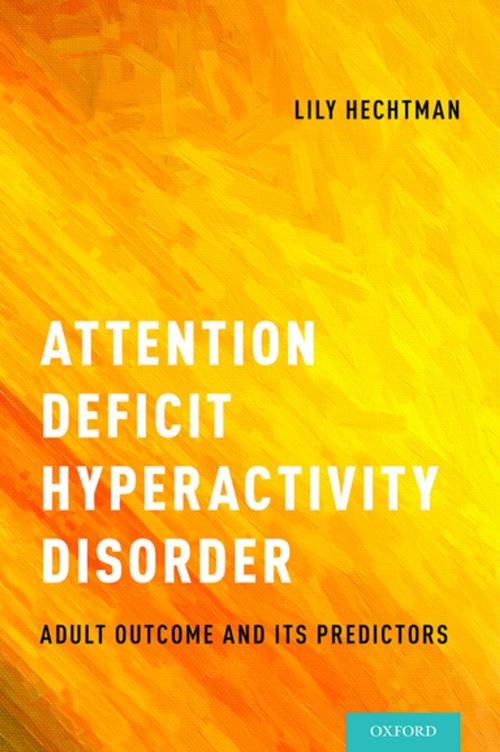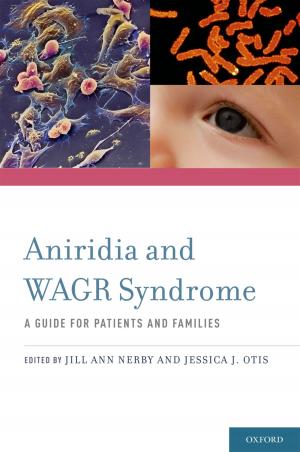Attention Deficit Hyperactivity Disorder
Adult Outcome and Its Predictors
Nonfiction, Health & Well Being, Medical, Specialties, Psychiatry| Author: | ISBN: | 9780190213602 | |
| Publisher: | Oxford University Press | Publication: | September 1, 2016 |
| Imprint: | Oxford University Press | Language: | English |
| Author: | |
| ISBN: | 9780190213602 |
| Publisher: | Oxford University Press |
| Publication: | September 1, 2016 |
| Imprint: | Oxford University Press |
| Language: | English |
The book provides a comprehensive summary of the best known and most highly respected well-controlled long-term prospective follow-up studies in ADHD. These studies followed children with ADHD and matched controls into young adulthood (mean age 20-25 years) and middle-age (mean age 41 years). They explore a wide variety of outcome areas, e.g. education, occupation, emotional and psychiatric functioning, substance use and abuse, sexual behavior, as well as legal problems. One chapter focuses particularly on the outcome of girls with ADHD. Outcome areas explored are thus comprehensive and clinically very relevant. The book also explores the possible predictors of adult outcome. A whole chapter is devoted to treatment (medication and psychosocial) as a predictor of outcome. In addition to treatment, predictors explored include characteristics of the child (e.g., IQ, severity of initial ADHD symptoms, initial comorbidity characteristics of the family, e.g., socioeconomic status, single parenthood, parental pathology, and family functioning. In a summary chapter, the impact and importance of these various predictors in different outcome areas, e.g. education, occupation, emotional/social functioning, antisocial behavior, substance use and abuse and risky sexual and driving behaviors are explored. In summary, the book provides a comprehensive view of the prognosis, e.g., long-term outcome of ADHD and key factors which can influence this outcome. Professionals and the general public will thus get a clear view of what can happen to children with ADHD as they proceed through adolescence and adulthood and address important prognostic and predictive factors in their treatment approaches to ensure better long-term outcome in patients with ADHD.
The book provides a comprehensive summary of the best known and most highly respected well-controlled long-term prospective follow-up studies in ADHD. These studies followed children with ADHD and matched controls into young adulthood (mean age 20-25 years) and middle-age (mean age 41 years). They explore a wide variety of outcome areas, e.g. education, occupation, emotional and psychiatric functioning, substance use and abuse, sexual behavior, as well as legal problems. One chapter focuses particularly on the outcome of girls with ADHD. Outcome areas explored are thus comprehensive and clinically very relevant. The book also explores the possible predictors of adult outcome. A whole chapter is devoted to treatment (medication and psychosocial) as a predictor of outcome. In addition to treatment, predictors explored include characteristics of the child (e.g., IQ, severity of initial ADHD symptoms, initial comorbidity characteristics of the family, e.g., socioeconomic status, single parenthood, parental pathology, and family functioning. In a summary chapter, the impact and importance of these various predictors in different outcome areas, e.g. education, occupation, emotional/social functioning, antisocial behavior, substance use and abuse and risky sexual and driving behaviors are explored. In summary, the book provides a comprehensive view of the prognosis, e.g., long-term outcome of ADHD and key factors which can influence this outcome. Professionals and the general public will thus get a clear view of what can happen to children with ADHD as they proceed through adolescence and adulthood and address important prognostic and predictive factors in their treatment approaches to ensure better long-term outcome in patients with ADHD.















